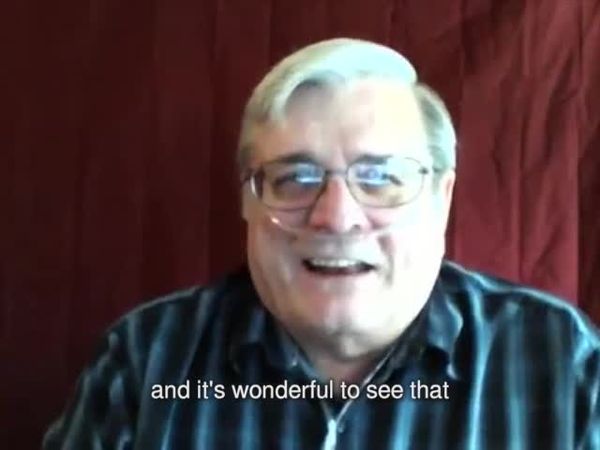As he reflected on his life in a video interview with the Wikimedia Foundation on April 29, Jim Pacha beamed and smiled a lot. During the talk, Pacha was reminded of all the remarkable things that happened to him, including highlights in learning and career advancement. Pacha became a senior software engineer at a prestigious aerospace company, even though he never graduated from college. He entered his profession at one of its lowest ranks and through the years mastered the necessary skills through study and hard work.
“The thing I’m proudest of,” Pacha said, “is that I’m essentially self-educated. I got started as an assembler. I worked my way through as a technician, and then as a junior engineer.”
An illness prompted Pacha to consider how to give back to the world, and he decided to donate much of his estate to the Wikimedia Foundation, to support our vision of bringing the sum of human knowledge to people everywhere. Pacha wanted others to benefit the way that he benefited, and he believed Wikipedia — with 30 million free articles on every subject imaginable — embodied his highest ideals. Prior to his legacy gift, Pacha made regular donations to the Wikimedia Foundation.
“Educating the world and getting everybody on the same playing field — I think it’s great,” he said. “And the fact that it’s done with no advertising is a big thing, because I really don’t like what’s happening in the world today, with corporate involvement in everything. And I like the fact that Wikipedia is on the World Wide Web, so basically the whole world can access it.”
Pacha passed away on May 7 at age 66. He accomplished much in his life. Growing up in Illinois, he wanted to see as much of the United States as possible. He visited 45 states. He loved playing golf, even though the game turned into “flog” when he was on the course, he joked. “My handicap would probably be in the 30s and 40s,” he said laughing. Pacha came from a long line of determined people, he said. His father, Harold Pacha, fought for the United States in World War II, and retired as a Brigadier General. Pacha’s last name, which is pronounced like “pay-shuh,” is rooted in family that came to the United States in the 1840s from central Europe. “When they came to Ellis Island, the spelling was something like Pdeskja. It’s one of those names — you hear it, you can’t spell it, you see it, you can’t say it.”
At Ball Aerospace & Technologies Corporation, located in Boulder, Colorado, Pacha designed, developed, integrated, tested and maintained instrument sensor and spacecraft simulations. It was a key position for a company that has helped support such operations as the Hubble Telescope, NASA’s Spitzer Space Telescope, and NASA’s CloudSat observation satellite. Pacha began using Wikipedia in 2006. “It was in conjunction with doing research for a project I was working on,” he said. “It was on propulsion systems or something along that nature.” Pacha went on disability in October of 2011 due to his illness, and made arrangements to make his legacy gift to Wikimedia in April 2014, after his health took a turn for the worse.
His illness, Pacha said, reminded him of what was important in life. “The vision of the Wikimedia Foundation is quite altruistic, and that’s basically my take on the world as well,” he said. “That would include medicine as well as education, in terms of everybody should have access to it. I realize that’s a pretty big dollop, and if we can get to the information part of it, that will help.”
Pacha’s gift to the Wikimedia Foundation is the largest legacy gift in our history. We’re extremely grateful for his generous donation, and we offer our most heartfelt condolences to his family and friends. Thank you, Jim. Thank you for everything that you did in your life.
Caitlin Virtue, Development Outreach Manager, Wikimedia Foundation
If you’re inspired by Jim Pacha’s gift and would like to to learn more about legacy giving, please visit: http://wikimediafoundation.org/wiki/Legacy_Gift.





